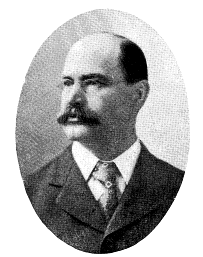| Profile | Major Works | Resources |
Frank William Taussig, 1859-1940.


Early professor of economics at Harvard.
Frank W. Taussig, was a student and later colleague of Charles Dunbar at Harvard. He has come be regarded as the "American Marshall", not only for his affinity to the doctrines of Alfred Marshall, but also for his highly influential role in American economics. Taussig's prime position at Harvard, his famous 1911 textbook and his control of the Quarterly Journal of Economics helped spread his version of Neoclassicism throughout the United States. Taussig was indisposed to the idea of a "Marginalist Revolution", stressing instead the congruity of Classical and Neoclassical economics. His 1896 attempt to resurrect the defunct "wages-fund" doctrine stands as an example of this. Although sympathetic to some Austrian principles - notably Böhm-Bawerk's theory of capital -- Taussig was otherwise generally opposed to radical, high-theory Marginalism as well as American Institutionalism.
Most of Taussig's contributions to economics have been on international trade, particularly on the issue of tariffs, on which Taussig was the foremost authority for decades. He was a lukewarm free-trader, but his anti-union and monometallist positions set him out as a relatively conservative economist. With brief interruptions (notably, to serve as advisor to Wilson's government in 1917-9), Taussig held his powerful Harvard pulpit 1885 until 1935, when that chair was handed over to his more colorful successor, Joseph Schumpeter.
|
Major works of Frank W. Taussig
|
|
Resources on F.W. Taussig
|
All rights reserved, Gonçalo L. Fonseca
